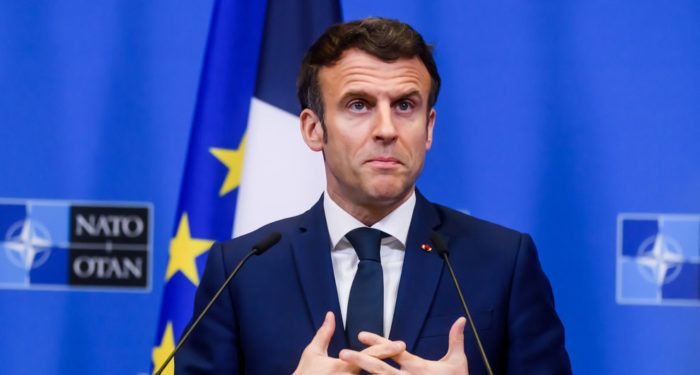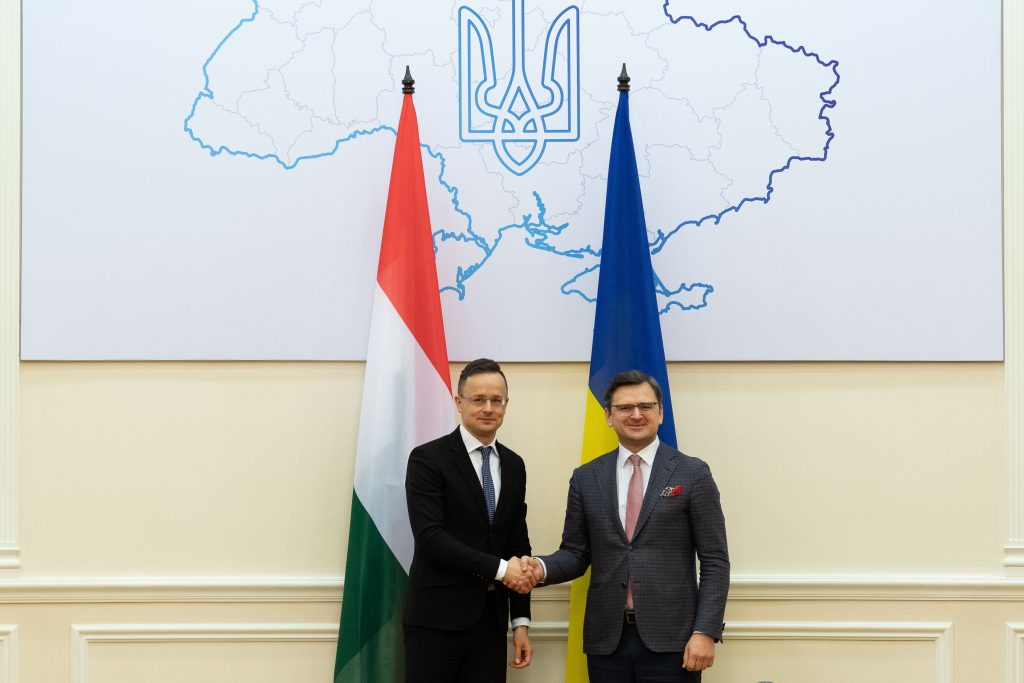Oleksiy Danilov, Secretary of the National Security and Defense Council of Ukraine (NSDC), mentioned on a political live TV show that one of the Allies vetoed Ukraine's accession to the Center, while an unnamed source told European Pravda
that that country was Hungary.
On 3 February, on 1+1 TV channel's evening political talk show Right for Power, NSDC Secretary Oleksiy Danilov mentioned that one of the EU countries blocked Ukraine from joining the NATO Cooperative Cyber Defence Centre of Excellence, which he referred to as "Cyber-NATO." Mr. Danilov mentioned it only in passing, commenting on a critical remark regarding his wording,
"There is an institution called Cyber-NATO. And we had submitted the relevant documents there last summer, all the relevant verifications were passed. And there, just like in NATO, decisions are made by consensus. And so one of the European countries denied our country's accession to this respectable institution. This is taking into account the fact that we've been at war with the Russian Federation for the eighth year, and we have constant attacks on us in the cyber [domain]. The most recent one was on January 13-14. This is an EU country, they are our neighbor, they denied it us. So tell me, do I have the right to say that these are 'quote-unquote partners'?" he said.

The cyberattack mentioned by Danilov took place in the early hours of January 14, when multiple Ukrainian government websites were hacked, including the Ministry of Foreign Affairs. In total, more than 70 government websites were attacked, most were preventively shut down to disable unauthorized access, 10 of them were defaced.
Ukraine submitted a formal request
to join the Tallinn-based Center last August. Founded by seven countries and having 20 members today - 17 NATO country's and three partner states, the Center has a strong influence on the Alliance's cyber security activities.
The procedure for approving the Ukrainian application began in October and Ukraine could have become a member of the Center as early as 1 January 2022. However, sometime before the deadline, Hungary announced that it would block Ukraine's accession, according to European Pravda.
The rules allow NATO nations to return to Kyiv's application, and it cannot be ruled out that, in the wake of this year's Russian cyberattacks on Ukraine, other Allies will persuade Budapest to reconsider its position. However, the meetings of the Center's Council, which makes decisions on the membership, are held only twice a year. So even in the most favorable case for Ukraine, it might join CCDCOE not earlier than the second half of 2022.
Hungarian officials haven't yet made public their country's position on Ukraine's denied membership in the Center. However, it's safe to guess that this decision generally goes along the lines of Hungary's policy to impede Ukraine's Euro-Atlantic integration efforts.
Back in 2017, Hungary announced that it would block the meetings of the NATO-Ukraine Commission at the political level and the procedure for Ukraine's accession to the Alliance following Ukraine's adoption of the education law. Hungary claims that the law is "violating the human rights of its ethnic minorities," namely of ethnic Hungarians in Ukraine. Budapest demands Hungarian is the language of instruction for Hungarian speakers in Ukrainian schools instead of Ukrainian.
- Read also: Why Ukraine’s language law is more relevant than ever (2019)
In January, Hungarian Foreign Minister Péter Szijjártó once again reiterated that Budapest was still dissatisfied with the situation with the rights of ethnic Hungarians in Ukraine and would therefore continue to block Kyiv's Euro-Atlantic aspirations.
Further reading:
- Ukrainian official sites under massive cyberattack with a Russian trace
- Ukraine hit by 2000 cyberattacks in 2021
- SBU says it prevented Russian agent’s arson attack on Hungarian consulate
- Hungary to continue blocking Ukraine’s NATO membership talks
- Kremlin propaganda spreads divisions between Hungarians and Ukrainians by exploiting century-old Treaty of Trianon
- Ukraine and Hungary move to settle differences over national minority legislation (2020)
- Ukraine-Hungarian relations: a tale of mounting mutual mistrust
- 'How Hungary became a weapon of Russian disinformation'
- Hungary has stabbed us in the back, says Ukrainian political scientist
- Tensions flare after Hungarian consul caught secretly issuing passports in western Ukraine
- “Hungary’s Jobbik Party shows itself to be Putinist, not Hungarian nationalist”
- Separatism Transcarpathian style: is Hungary aiming to grab a part of Ukraine? (2017)
- Hungary openly helping Putin destabilize Ukraine (2015)





